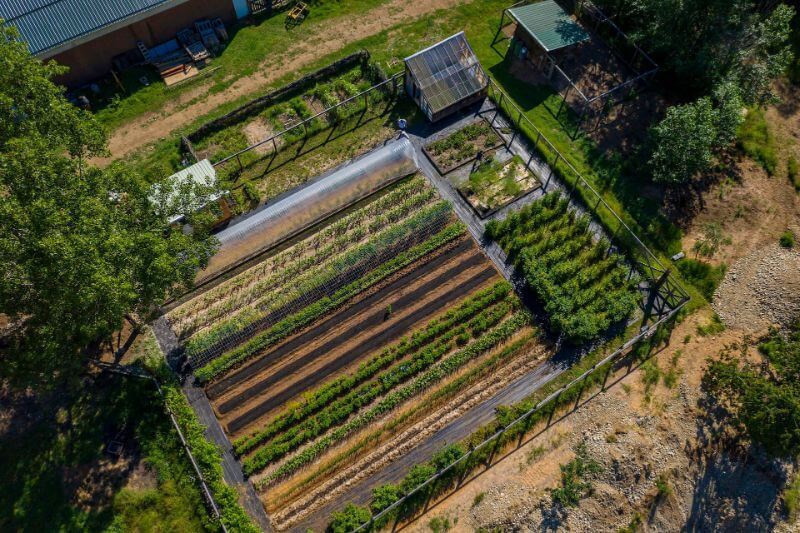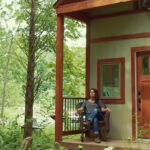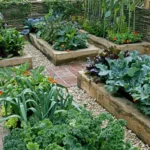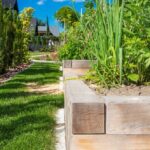Welcome to the world of shade gardens on a 15 acre homestead, where nature and tranquility come together to create a serene environment. If you’re a homestead dreamer, you’re in the right place. Whether you’re new to gardening or have a green thumb, this guide will help you cultivate a beautiful and sustainable shade garden on your homestead.

Understanding Shade Gardens
Shade gardens are a delightful retreat, offering a cool and calming environment. They are perfect for areas that receive less sunlight, allowing you to make the most of your land. On a 15 acre homestead, you have ample space to experiment with different plants and designs.
Benefits of Shade Gardens
Shade gardens offer many benefits. They provide a respite from the heat, support biodiversity, and enhance the aesthetic value of your homestead. Additionally, they can be a haven for shade-loving plants that thrive without direct sunlight.
Planning Your Shade Garden
Before you start planting, it’s essential to plan your garden carefully. Consider the amount of shade your garden receives, the soil type, and the climate. These factors will influence the choice of plants and the layout of your garden.
Choosing the Right Plants
Selecting the right plants is crucial for the success of your shade garden. Opt for shade-tolerant species such as ferns, hostas, and astilbes. These plants thrive in low-light conditions and add texture and color to your garden.
Designing Your Garden Layout
When designing your garden layout, think about creating layers. Use taller plants at the back and shorter ones at the front to create depth. Incorporate paths and seating areas to make your garden more accessible and enjoyable.
Implementing Sustainable Practices
Sustainability is key to a thriving homestead. Implementing sustainable practices in your shade garden will ensure its health and longevity. Consider using organic fertilizers, mulching, and rainwater harvesting to support your garden.
Learn more about sustainable living on a homestead.
Water Conservation Techniques
Shade gardens typically require less water than sun gardens. However, it’s still important to conserve water. Use drip irrigation systems or collect rainwater to minimize water usage. Explore more about rainwater harvesting on your homestead.
Soil Enrichment Strategies
Healthy soil is the foundation of any garden. Amend your soil with organic matter to improve its fertility and structure. Composting is an excellent way to enrich your soil naturally.
Maintaining Your Shade Garden
Regular maintenance is vital for a thriving shade garden. Pruning, weeding, and mulching are essential tasks to keep your garden healthy and attractive.
Pruning and Weeding
Pruning helps maintain the shape and size of your plants, while weeding prevents unwanted plants from competing for resources. Both tasks are necessary for the health of your garden.
Mulching Techniques
Mulching retains moisture, suppresses weeds, and adds nutrients to the soil. Use organic mulch such as wood chips or leaves to cover the soil surface.
Integrating Wildlife
A shade garden can attract a variety of wildlife, including birds and insects. Providing habitat and food sources will encourage biodiversity in your garden.
Attracting Pollinators
Pollinators play a crucial role in the ecosystem. Plant flowering species and provide water sources to attract bees, butterflies, and other pollinators.
Creating Habitat for Birds
Birds add life and color to your garden. Install bird feeders and nesting boxes to invite birds to your homestead.
Common Challenges and Solutions
Gardening in the shade does come with its challenges. Limited sunlight, pests, and diseases are common issues. However, with the right strategies, you can overcome these challenges and enjoy a flourishing garden.
Pest Management
Integrated pest management (IPM) is an effective approach to control pests naturally. Encourage beneficial insects and use organic pesticides when necessary.
Disease Prevention
Good garden hygiene and proper plant spacing can reduce the risk of diseases. Remove diseased plants promptly and avoid overcrowding to promote air circulation.
The Joy of Shade Gardening
Shade gardening on a 15 acre homestead is a rewarding experience. It offers a unique opportunity to create a peaceful retreat while contributing to the overall health of your environment.
Embracing the Tranquility
Take time to enjoy the tranquility of your shade garden. It’s a place to relax, reflect, and connect with nature.
Sharing Your Garden
Invite friends and family to experience the beauty of your garden. Sharing your garden with others can be a source of joy and inspiration.
Conclusion
Cultivating shade gardens on a 15 acre homestead is a fulfilling journey. With careful planning, sustainable practices, and regular maintenance, you can create a thriving garden that enhances the beauty and value of your homestead.
For more information on homestead design, visit Homestead Design.

FAQs
What are the best plants for a shade garden?
Ferns, hostas, and astilbes are excellent choices for shade gardens. They thrive in low-light conditions and add color and texture to your garden.
How can I make my shade garden more sustainable?
Implement sustainable practices such as using organic fertilizers, mulching, and rainwater harvesting. These methods promote the health and longevity of your garden.
How do I attract wildlife to my shade garden?
Plant flowering species to attract pollinators and provide water sources. Install bird feeders and nesting boxes to invite birds to your garden.






